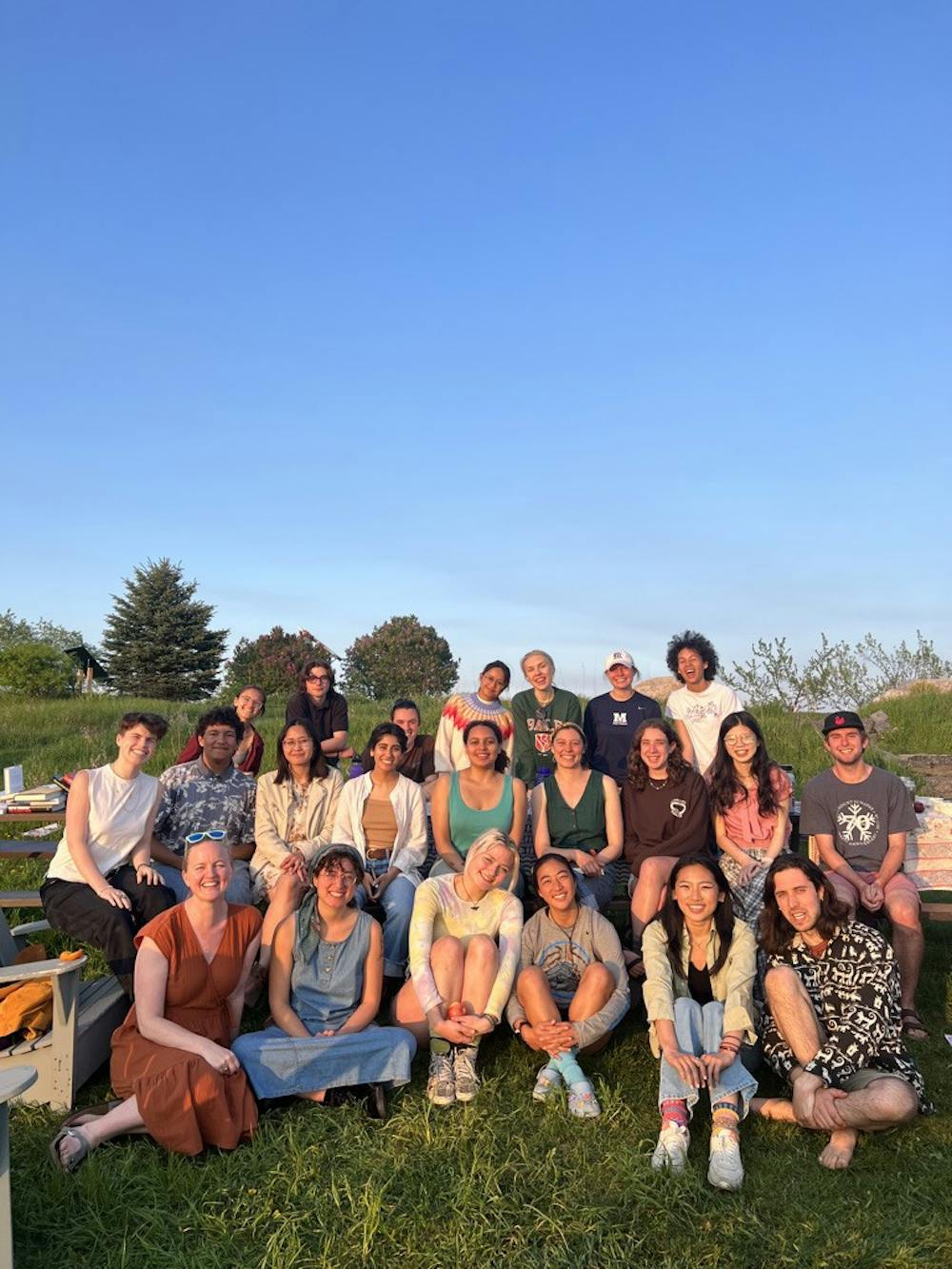Climate awareness. Environmental advocacy. Green initiative. Whatever you choose to call it, it is near impossible to disentangle Middlebury College from the environmental movement. Since creating the nation’s first environmental studies department in 1965, Middlebury has long been at the vanguard of conversations on climate change and environmental systems. Now, with $7 million in donations from the Erol Foundation and NextWorld Philanthropies, Middlebury looks to take the next step forward with the expansion of the Climate Action Program.
Launched in the fall of 2020, the Climate Action Program — formerly known as the Climate Action Capacity Project — was created to give students the opportunity to pursue their own passions with regard to climate change as well as to broaden its discussion on campus. Following the initial setback of the Covid-19 pandemic, the program has grown in recent years to include a series of speakers and a large fellowship program. With the new gifts, however, the program is poised to take its next steps to include more people of varying backgrounds across the campus and beyond.
“We’re really intentional about making this a space for people who are maybe already deeply involved, but also for people who haven’t yet found their place in climate engagement on campus,” said Minna Brown ’07, founder and director of the Climate Action Program. “So how can we provide breadth, depth and scaffolding for that? We want to see students deeply engaged with their work and we want to meet them where they are.”
The Climate Action Fellowship program, which provides funding opportunities for students to pursue internships and community projects of their choosing as a part of the broader Climate Action Program, has run every year since the program’s inception. Now hosting its fourth cohort, the fellowship includes project work across many disciplines, ranging from researching insects in local forests to analyzing corporate air pollution.
The majority of students currently in the fellowship begin their work as a summer intern with an external organization before carrying their work into the academic year. The cohort draws from a diverse array of academic majors and includes students specializing in environmental studies, economics, computer science and gender, sexuality and feminist studies.
“At the end of the day, we need people in small NGOs but we need people with knowledge of large financial markets too,” Brown said. “We need people going out there and studying ice sheets and artists and faith leaders and teachers. Every single career path and discipline has an opportunity and a responsibility to recognize how deeply we need to transform our society.”
Marlow Saucier ’24 is in their second year as a Climate Action Fellow and currently works with the Addison County Relocalization Network after a previous internship with the Susu Community Farm in Newfane, Vt. Saucier highlighted the importance of the fellowship funding because it allows students to explore opportunities that otherwise may go unnoticed or unfulfilled, and explained that the fellowship encourages students to choose their own pursuit about which they are passionate.
“Oftentimes, what the Climate Action Project does is fund internships outside of Middlebury’s radar with smaller organizations,” Saucier said. “They work with places that cannot pay an intern on their own or with places that have a project where it would be really useful to have a student worker. And the opportunity to get paid for this work that is important to you lets you know that this work is also important to the community and is valued by someone, which I really appreciate.”
The fellowship is far from the only facet of the Climate Action Program. Since 2020, the program has included a series of open lectures and conversations from a diverse range of figures in the environmental movement. It has hosted lectures from established authors like Naomi Klein and Middlebury’s Schumann Distinguished Scholar in Environmental Studies Bill McKibben, talks from policy experts like Dr Ayana Elizabeth Johnson and dynamic discussions like Earth Week at Middlebury and the Environmental Studies Colloquium. The majority of these guest speakers and events have been selected through student input.
“We ask our students [for] the voices that are most exciting to them,” Brown said. “And really, we want to make sure we hear the voices of marginalized folks and the voices of people who are underrepresented on this campus.”
In addition to lectures and dialogues, the Climate Action Program has arranged a variety of other events such as film screenings, art seminars and career workshops. While a significant amount of work has already been done with regard to events focused on employment , Brown said she hopes to see even more career conversations by including more voices from alumni.
“We’ve done a variety of things with the CCI already, and they’ve been really helpful, so we’re working on getting even more of an alumni network up and running,” Brown said. “We want to give alumni the opportunity to raise their hands and say, ‘I’m doing this work and I absolutely want to help.’”
As the Climate Action Program expands and evolves, one enduring tenet is the value it places on community. Whether it is relationships being built between faculty and students, bridges formed across universities or friendships fostered amongst peers, the Climate Action Project continues to place a tight-knit community at the core of its mission.
“Being a young person in the climate world can feel really hopeless sometimes,” Saucier said. “But being surrounded by people that care deeply and who are also committing time and energy to this cause is really inspiring.”

Charles Crounse '24 (he/him) is the senior sports editor for the Campus. He has previously worked as a writer and staff editor for the section. Charles is pursuing a major in environmental policy and a minor in French, and in his free time he enjoys biking, hiking, and exploring Vermont. He is also a member of the club soccer team on campus.




